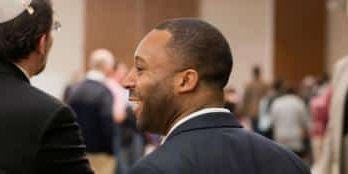In 2012, elected officials in Cleveland, Ohio faced the daunting task of slashing the school district budget. Constituents from all over understood the need to save funds, but refused to sacrifice programs specific to their interests. Religious organizations representing Muslims, Jews and Christians had been unwilling or unable to join hands and work for all parties to come to the table and compromise.
In the end, the only agreement that could be reached was to reduce support for programs that would impact the voiceless – kids. Early childhood education, high school transportation, summer school and athletics faced steep cuts.
Battling to overcome the inertia of orthodoxy, a new initiative – the Greater Cleveland Congregations (GCC) – united Christians, Muslims and Jews for the greater good. GCC activists spent a year building relationships across difference to build the trust that would allow them to join hands for a common goal: ensuring that every child has access to a first-rate education.
Before this coalition, there was no vehicle for a shared prophetic voice to shape the major public policies affecting Greater Cleveland. Other groups serve the important but different missions of educating people about religious tradition or improving a particular neighborhood. While nonpartisan, GCC engages public leaders head-on, calling them to account for their performance in office and offering support when deserved.
Their commitment to transcend dogma paid off for Cleveland: Mayor Frank Jackson, school district CEO Eric Gordon, and teachers union president David Quolke explained to the 850-plus GCC assembly how they reversed the cuts to children’s services. They also answered questions about how the public can be sure that such a crisis does not happen again.
GCC trains its members to talk to each other as individuals, not as mascots of this or that tribe. Drawing on the proven power of person-to-person organizing, GCC is transforming a city. The nation could take notes.

